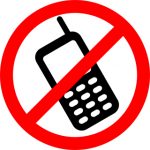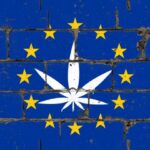‘N-Bomb’ Linked to Deaths of Young Australians

On June 8, the body of Rye Hunt was found washed up on a beach in Marcia, just outside Rio.
Tasmanian-born and bred, Rye was backpacking overseas with a mate. They’d been travelling for seven weeks and were amiable travelling companions, until the fateful day when they had an argument about where to venture next.
Rye left the airport where the pair had agreed to meet, then disappeared, leaving behind a great deal of confusion about the last hours of his life – and how and why he ended up dead in Brazil.
At some point in the hours before going missing on May 22, Rye is believed to have taken the highly potent drug ‘N-Bomb’, mistaking it for ecstacy, at popular night club in the middle of the city, Raizes da Lapa.
Witnesses at the club say Rye and a friend and travel buddy, Mitch Sheppard, were acting anxiously and irrationally, under the paranoid delusion that others wanted to kill them.
Local Police believe that while undergoing a psychotic episode, Rye swam almost a kilometre to an uninhabited island off the coast, called Cotonduba. What happened next we may never know. His body was washed ashore almost two weeks later.
Rye’s family says it was completely out of character for their son to use illicit drugs. They point-out that he worked in the mining industry and was regularly submitted to drug tests as part of his employment.
They say he “never failed a test.”
The N-Bomb
The drug known as ‘N-Bomb’ has been emerging in popularity in recent times. It acts a little like LSD in so far as it causes hallucinations and euphoria that can last, in some cases, more than 12 hours.
It can also induce aggression, self-harm and paranoia. In the brain, reality gets twisted and time is distorted, and the effects can feel like they are lasting much longer for the person experiencing them.
It is now thought that Sydney student Henry Kwan, who confessed to his mother he’d taken drugs and ‘felt like he could fly’ moments before removing his clothes and jumping from a third floor balcony, took an ‘N-Bomb’ without realising its effects.
Experts say that NBOMe — an abbreviation for N-methoxybenzyl — is a chemical structure that acts as a body for a series of drugs. It’s within a class of drugs which include psychedelics and hallucinogens. It’s said to be highly powerful -a small dose can have a huge effect .
N-Bomb can be found in pill, liquid or powder form. In some cases it has been found in gummy bears. It is usually manufactured in sophisticated drug labs overseas, especially China.
‘N-Bomb’ in Australia
Australian police first became concerned about N-Bomb in around 2013 and 2014, issuing a warning for party-goers to be on the lookout for “Blue Batman” – a blue tablet with a batman logo stamped on it which looks similar to ecstasy, but contains “dangerous levels” of the NBOMe substance.
Drug experts say it is difficult to determine how much of the drug has infiltrated into Australia, because it is available in small doses and it is relatively easy to ship undetected.
Police say that such ‘synthetic’ substances have become more readily available in the past 5-10 years largely, in part, because of globalised supply channels through the Internet.
The problem is that while these drugs might be relatively easy to obtain, users cannot always be certain of what’s in them. And there precisely is the risk because use of strong psychedelic drugs can cause lasting brain damage and even lead to death.
Drug Penalties
Of course, there’s also the law to consider. If you get caught possessing or supplying illegal substances, the penalties in Australia can be harsh.
That said, the penalties can be even harsher overseas – for example, the cases of Shapelle Corby and the Bali 9 serve as reminders of what can happen if you are caught with drugs in a foreign country.
It’s important to remember, too, that overseas holidays can be conducive to lapses in good judgement, especially if you’ve had a few drinks, or you’re relaxing with friends and feel that you’re so far away from home that ‘normal rules’ don’t apply…
But if you do break the law abroad, you will be tried under that country’s rules, with all the extra language and cultural hurdles that go with it.






